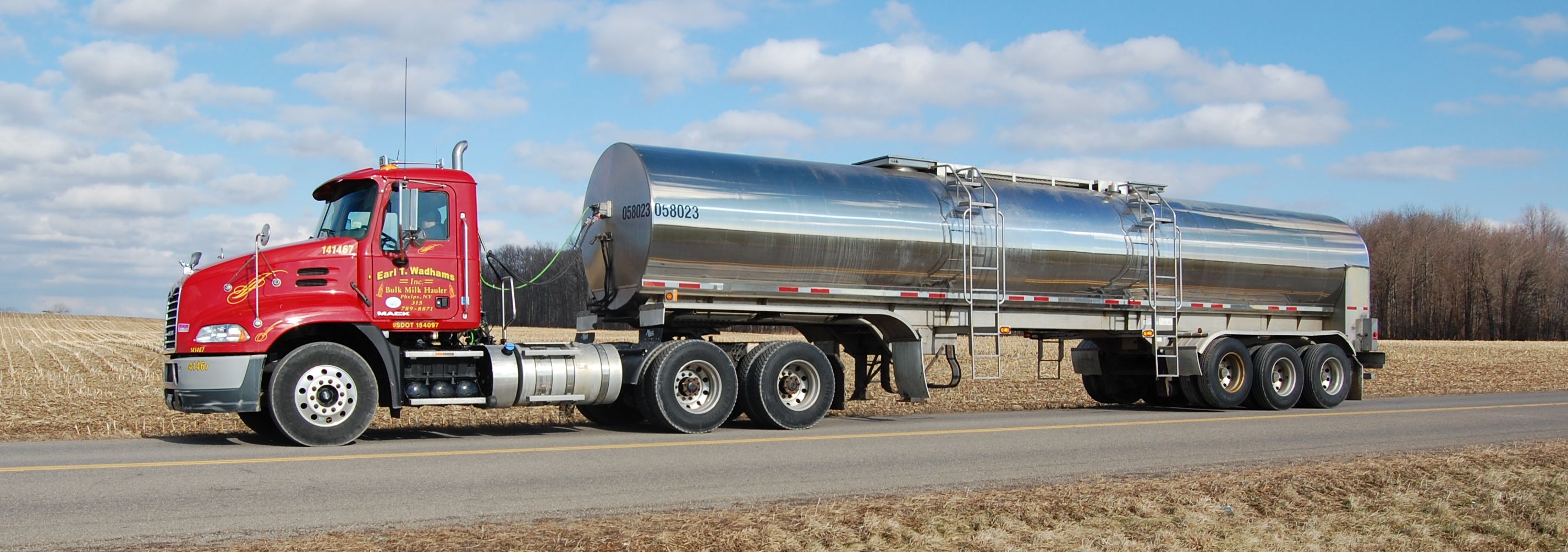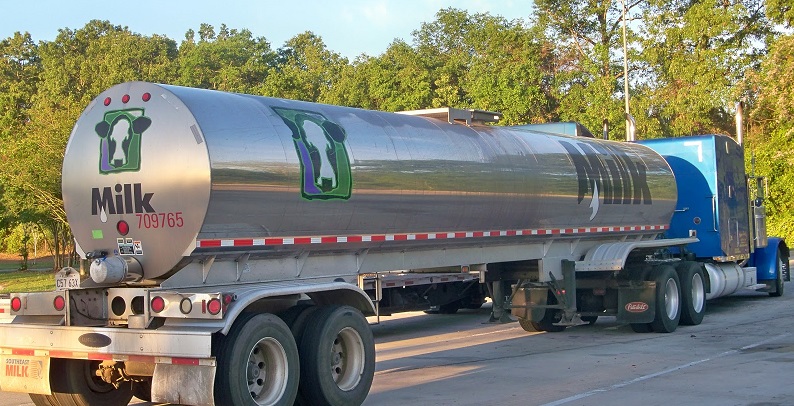The Industry of Tanker Fleets
In deciding what type of trucking fleet that one might like to join in the continued pursuit of a trucking job, one popular option that may come up is joining a Tanker fleet.
As a non-commercial driver, one may have seen rigs from these fleets on the road – often cylindrical shaped containers transporting materials that range from Hazardous liquids to something as commonplace as a liquid such as milk.
Known throughout the industry as positions that may be more demanding than others, tanker jobs are assuredly not meant for any driver, but those willing to operate with the highest level of conscientiousness.
Tanker positions are not just afforded to veterans of the road and those who have a heightened aptitude for driving. With some experience and the proper training, a tanker position can be attained by just about any driver willing to put in the effort, and may lead to a career on the road that is fulfilling and profitable.

An Introduction to Tanker Fleets
As a modern job seeker, one may find that some trucking companies contain various types of tractor-trailer combinations, ranging from flatbeds to dry vans to tanker rigs. There are, however, many trucking companies across the map that are exclusively tanker fleets, operating in lanes that deal with commodities such as oil and other liquids or with industries adjacent to trucking such as agriculture, oil, and mining that require transportation from a specialized fleet.
These fleets are a unique asset within the industry, providing perhaps a more specific function than fleets that deal in dry van or refrigerated loads, as this type of truck must often be dispatched from a variety of hard-to-access locations to reach consumers often with an incredibly specific need.
This is not to say that tankers are only called upon in for a small number of situations or when the need arises, as the need for these types of trucks is frequent and often of the utmost importance.
In short, tanker fleets are frequently called upon to hand the duties of commercial transport that other fleets may not be able to accomplish, and in doing so, they have made a distinction in being a fleet that may "save the day" in many instances.
What it Takes to Drive In These Fleets
As with nearly any other type of truck driving job in the industry, one of the keys to success in attaining and maintaining this type of driving position is a profound knowledge of the industry and of the field one is working within.
As mentioned above, one does not need to be an expert in tankers in order to succeed, but being able to commit oneself to an understanding of safe operation of the trucks and the nature of the freight is an excellent platform to begin one's understanding of these type of jobs and fleets.
Tanker positions also require a great deal of precision and driver confidence in order to carry out the job successfully and safely. Any anticipated level of "wiggle room" that may accompany other trucking jobs can be more or less dismantled in the context of tankers, due to the nature of the cargo one is taking on the road as well as the equipment itself. No truck hauling oil, for example, can possibly survive a margin of error greater than the slightest misstep – and even those may be incredibly dangerous or costly.
One must also understand the other side of the transportation process for this particular type of loads– the customer. Taking on a trucker job of this nature will find one interacting with clients who may hold very high expectations for their freight and they may be expecting a true expert to be the one making the delivery.
While it will be nearly impossible to ensure that every client feels totally fulfilled over the course of your tanker run, one can nonetheless instill confidence in those they are delivering to by driving in a manner that promotes road safety for all parties involved.
Lifestyle of a Tanker Fleet Employee
While every experience behind the wheel will be an individualistic one, there are several aspects of nearly all tanker jobs that are true to those who hold them.
One commonality that seems to be shared across nearly all tanker positions is the level of importance that the exterior public places upon these positions. This is not to diminish any other trucking positions, but generally speaking, tanker jobs are viewed by the general masses as those of dire importance, often in their relationship to providing fuel or other valuable commodities.
As a tanker driver for a company, one will likely be dispatched upon a dedicated route, working in regularity with a customer or client who will likely require a specific shipping need. Through the course of this route, tanker drivers may have the ability to establish a profound and meaningful relationship with a client and may find that the fruits of their labors are even more appreciated due to this partnership as it were.
Driving a tanker is no easy matter, however, and many drivers may find that operating this particular piece of equipment presents more of a challenge than other tractor-trailer combinations. There are many factors one must consider when behind the wheel, including other motorists on the road, how exterior weather factors might influence transportation and the overall stability of the items one is taking along.
How Much Can I Make In This Job?
No two tanker fleets are going to be alike in how they pay their or the rate that they pay their drivers. Some companies may make payouts to drivers per mile versus an hourly or weekly rate, with drivers preferring a mile payment due to the sometimes-increased rate that may receive for their hard work.
Despite differences from one company to another, on average, drivers in tanker fleets typically may
see close to $80,000 per year – compare this to the average salary of a trucker at nearly $50,000 and one will find that driving a tanker can give a driver an attractive paycheck for their hard work.
As mentioned above, some companies will reward their drivers with an additional pay per mile due to the fact that they hold Hazmat or Tanker endorsements. This further proves that there is a great and inherent value in taking the time to gain endorsements to bolster one's driving career, and that companies will not only see you as a valuable driver in terms of competency, but they will often reward those financially who have endorsements.

Educating Yourself About Tanker Fleets
Some drivers may be curious as to how they might gain more information regarding driving in these positions or these particular fleets in general, or why having knowledge about this line of work is necessary as one searches for jobs in their area.
In regards to importance of knowledge in this field, knowing about Tanker fleets in some capacity is
crucial in order to pass the cdl test. It is a good idea to cover your bases in terms of knowledge across the board in order to prepare for any related questions that may arise when testing for one's CDL. To this end, many resources online contain information about tankers and the world of trucking with tanks.
Another resource for gathering more information would be reaching out to trucking companies who specialize in tanker transport, and asking them specifics about the jobs they offer. Many companies will be more than happy to provide information to a prospective driver and can give a fairly detailed breakdown of the activities of their fleets engage in and what is expected of their drivers, on average. Every company may have slightly different protocol for their operations and a differing level of autonomy within their fleets, but for the most part, speaking to a professional trucking company can provide valuable insight into the innerworkings of these fleets.
Finally, if reaching out to these companies seems daunting or as if it is too much of a hassle, one can consult trucking-related forums or message boards and see what the professionals online have to say about the experiences and careers dealing with tankers.

An Important And Necessary Part of the Transportation Industry
Becoming part of a company that dispatches tanker trucks can be one of the most fulfilling experiences that a driver may find in their career on the road.
While sometimes a challenging and perhaps unforgiving type of run, tanker positions should not be looked down upon simply due to perceived difficulty or the rigorous lifestyle associated with driving this unique setup.
Successful drivers will do some research, they will take a look at the requirements this type of driving calls for and will ultimately make a decision that provides them with a comfortable and rewarding career behind the wheel.
Take the free CDL practice test
Similar types of questions that will be on the actual DMV exam
Get started
